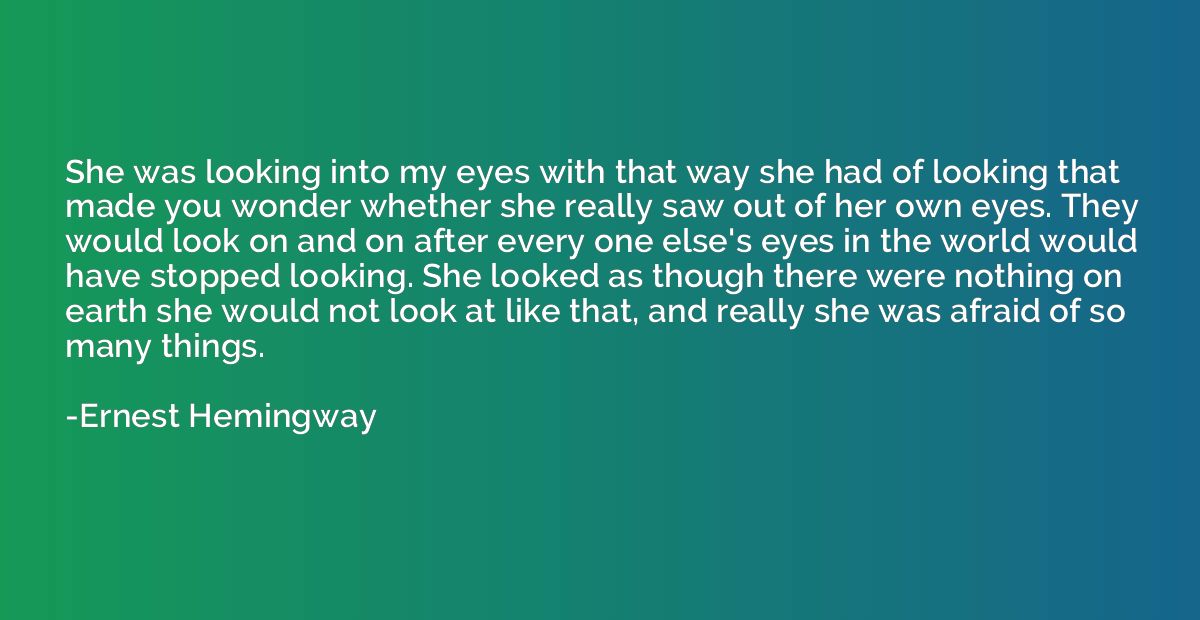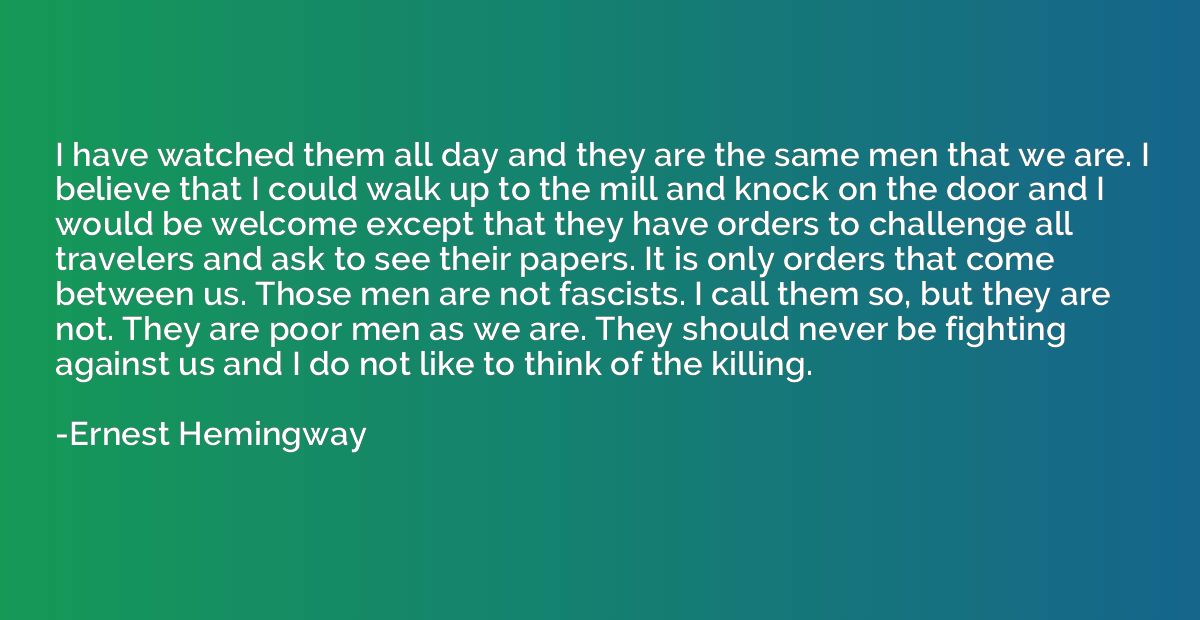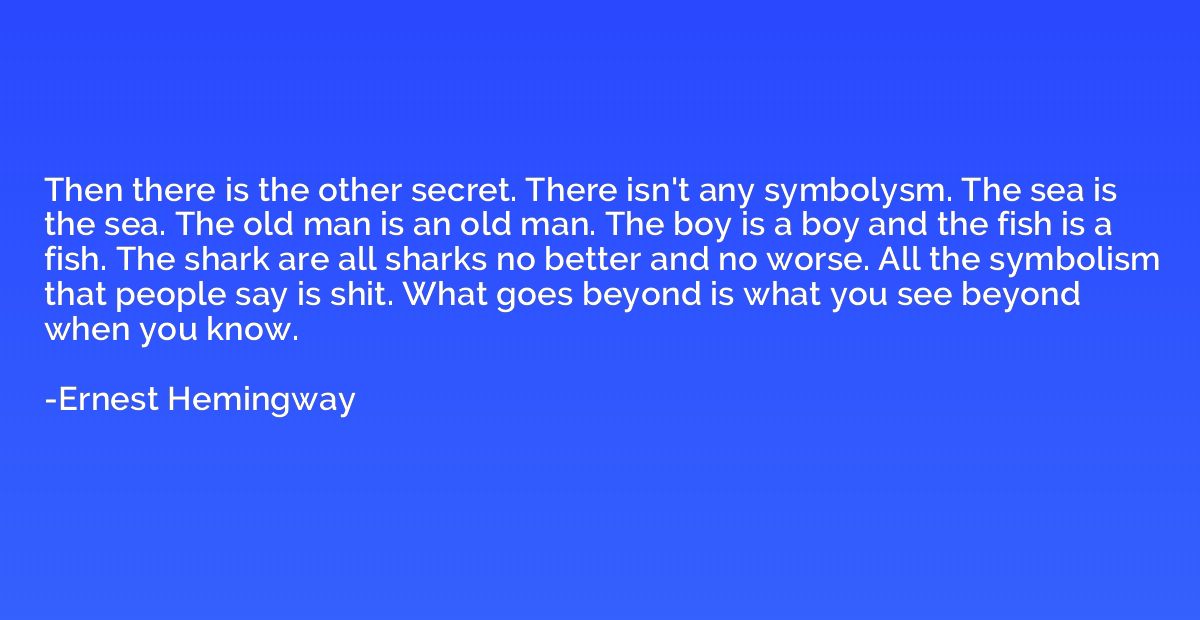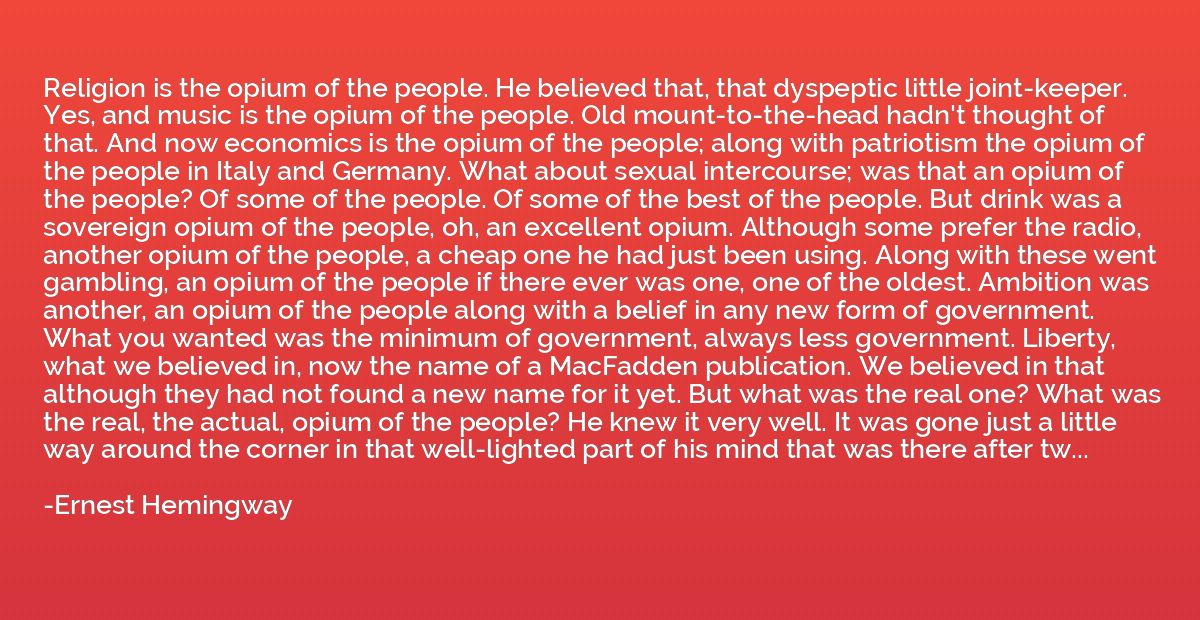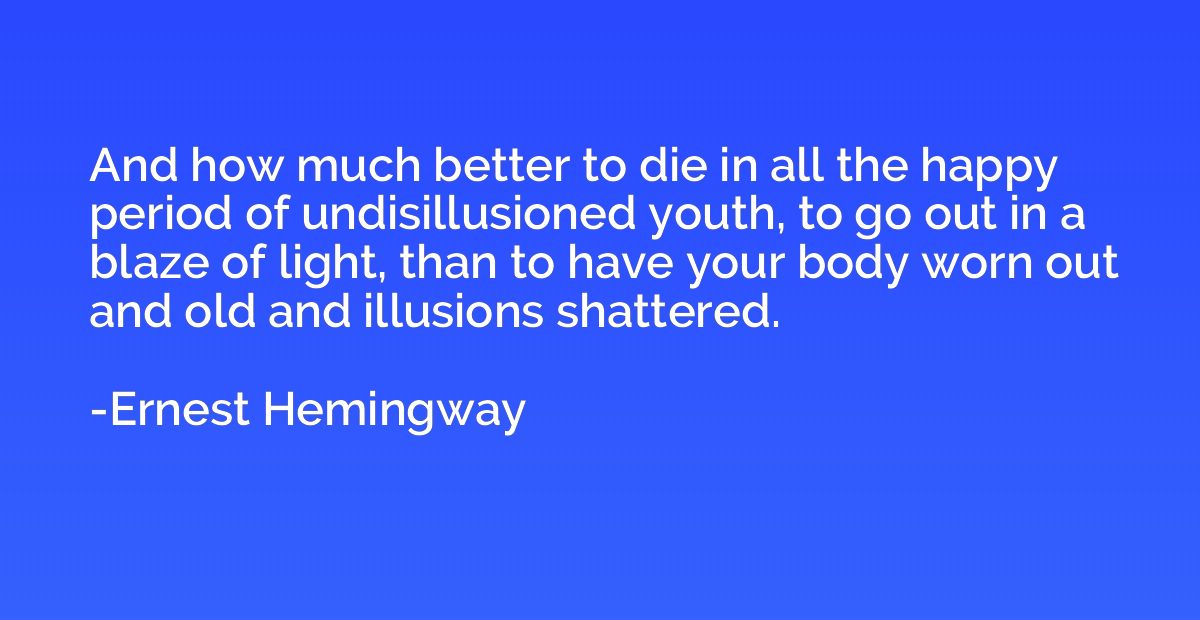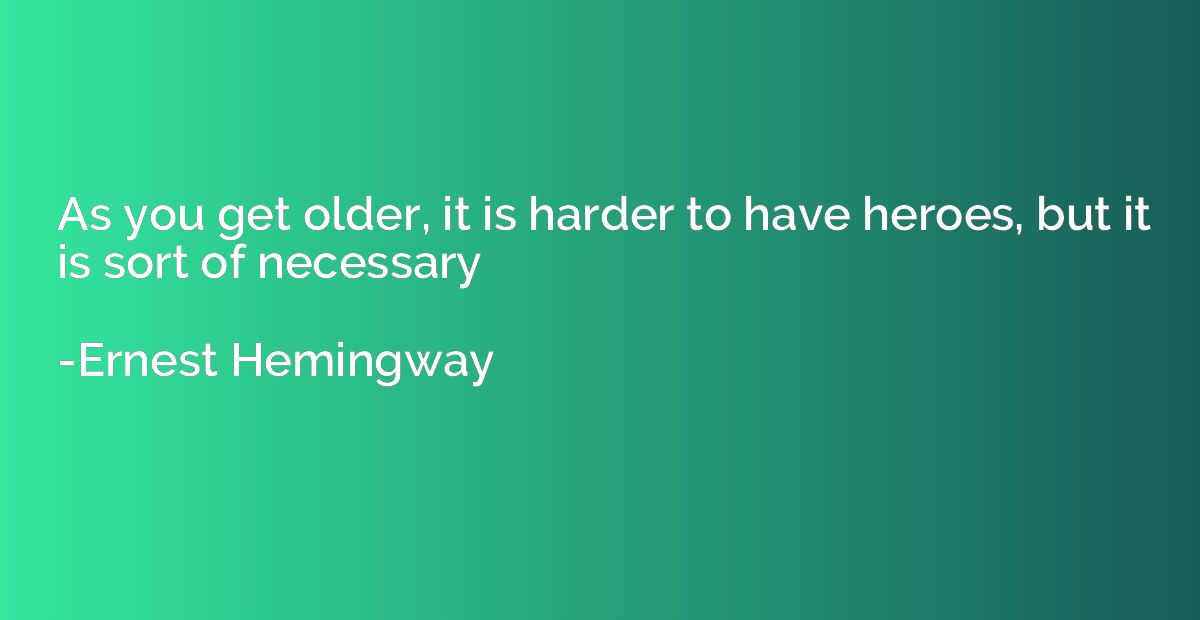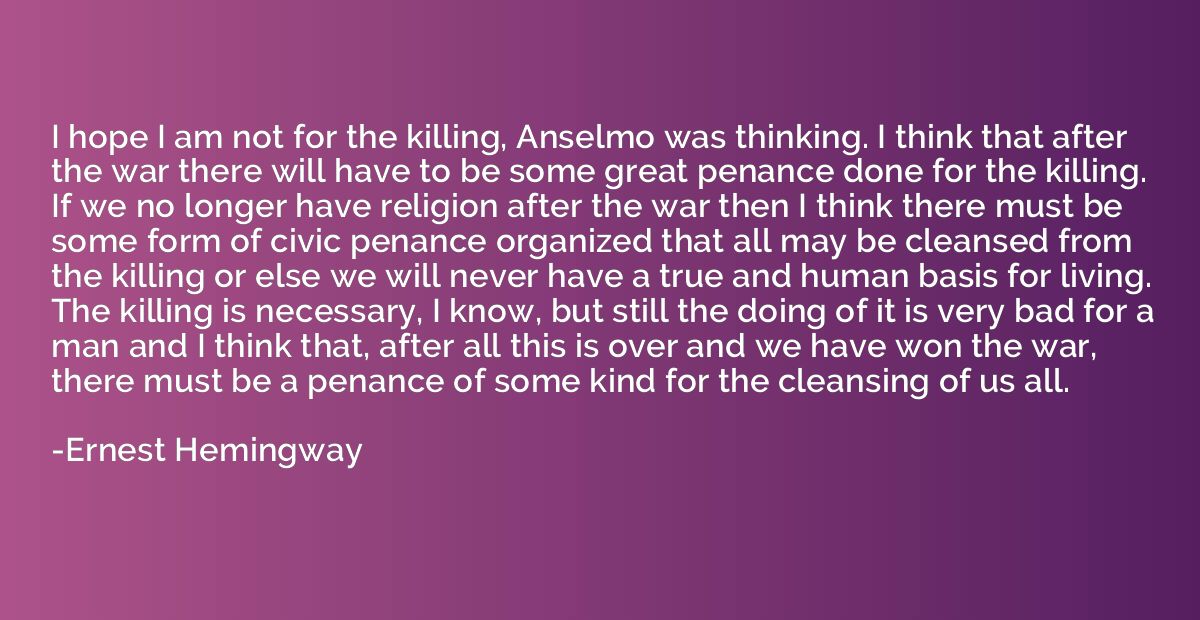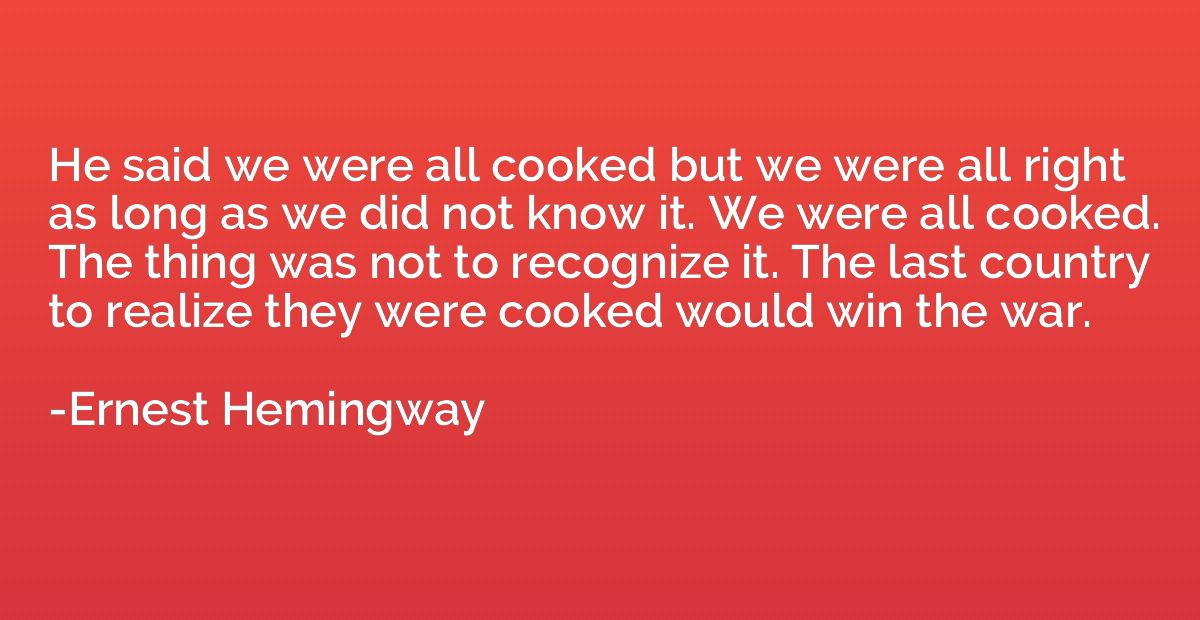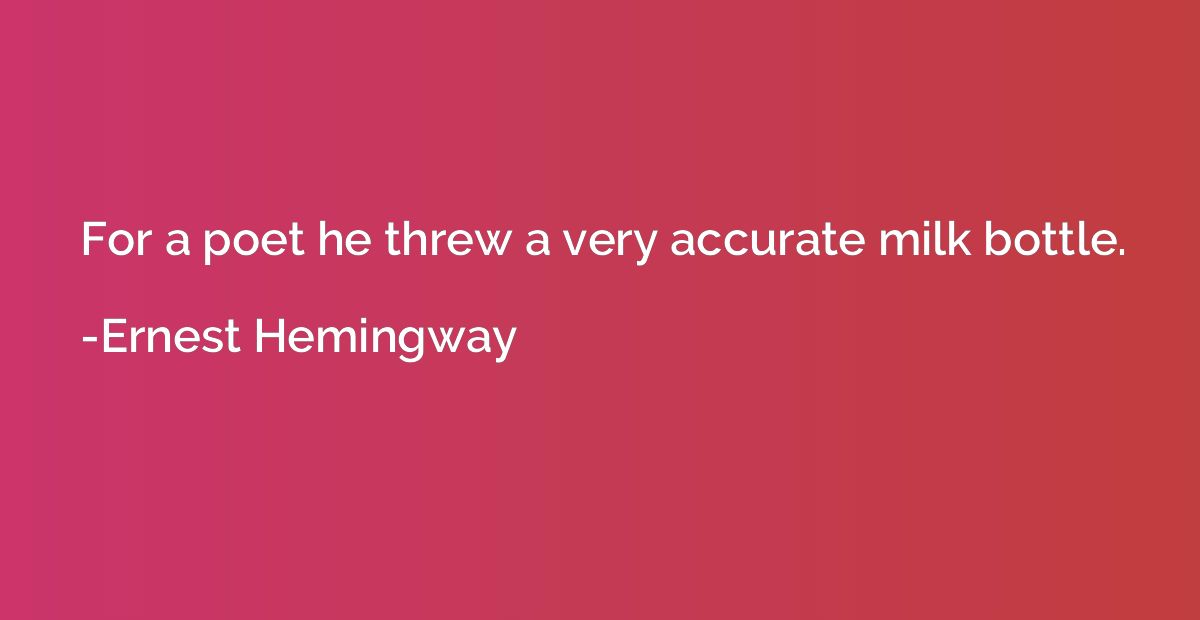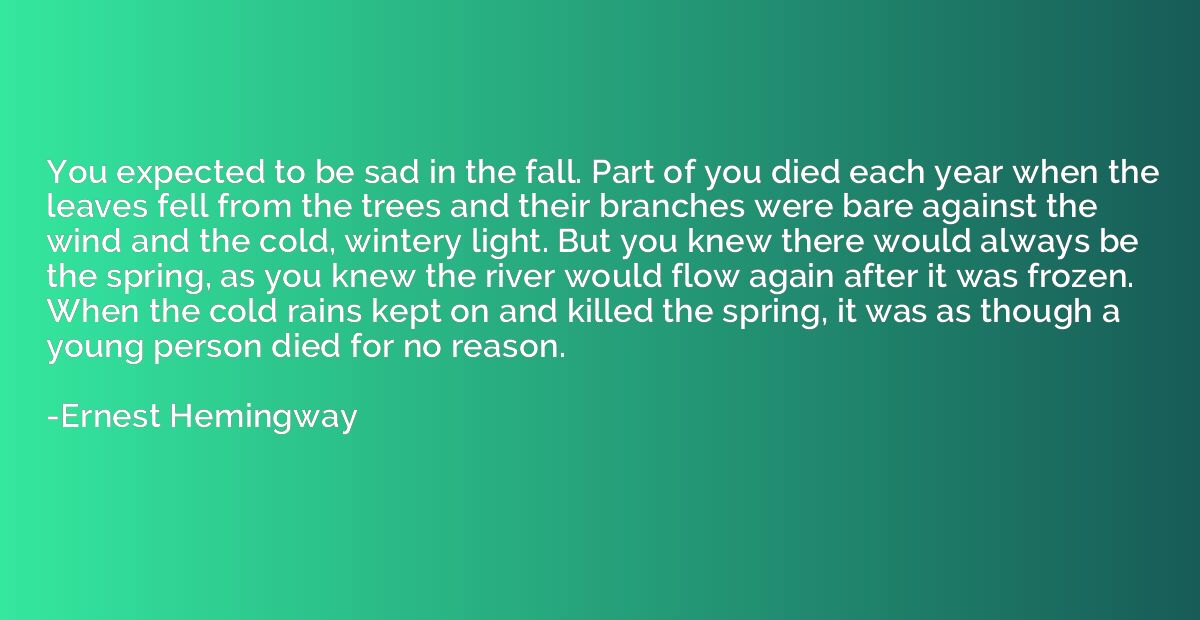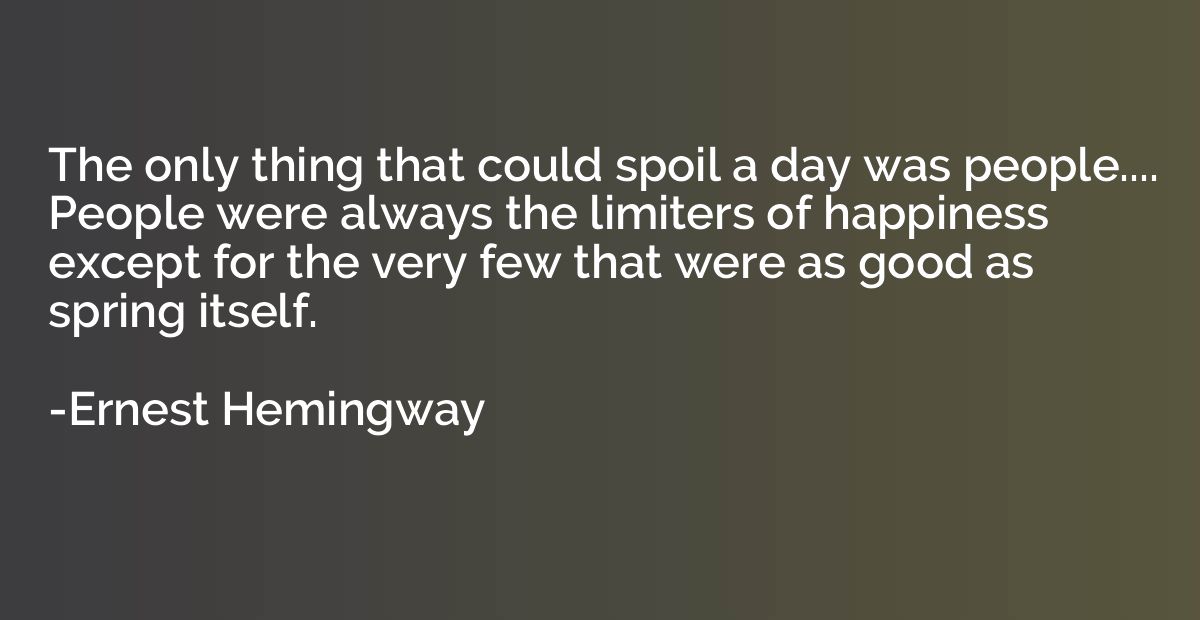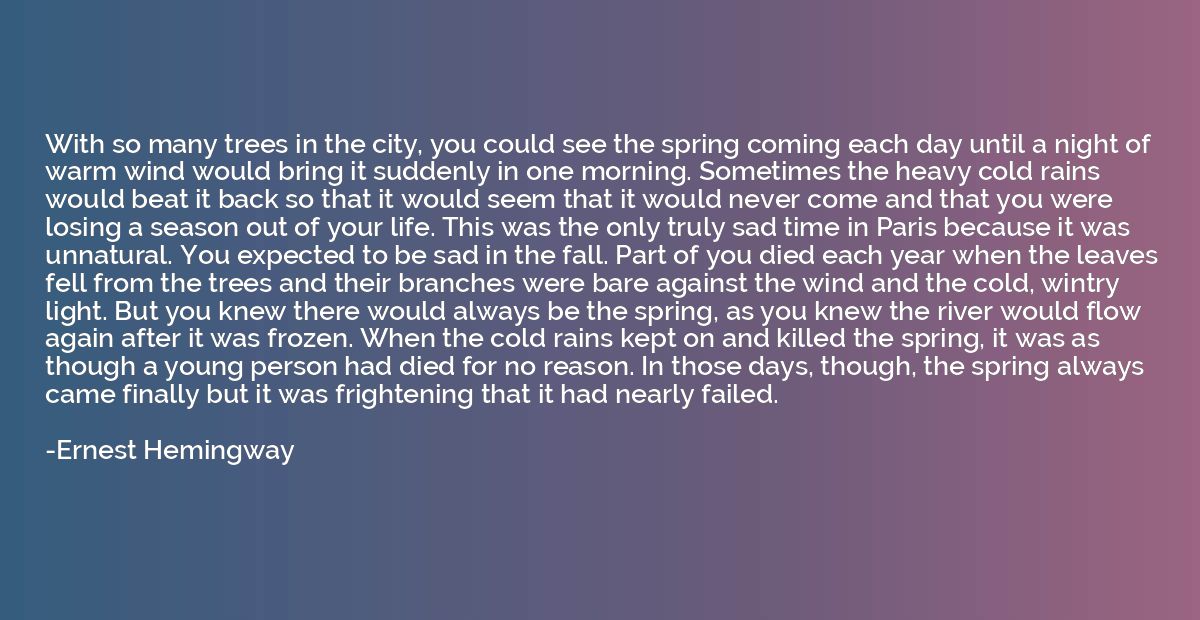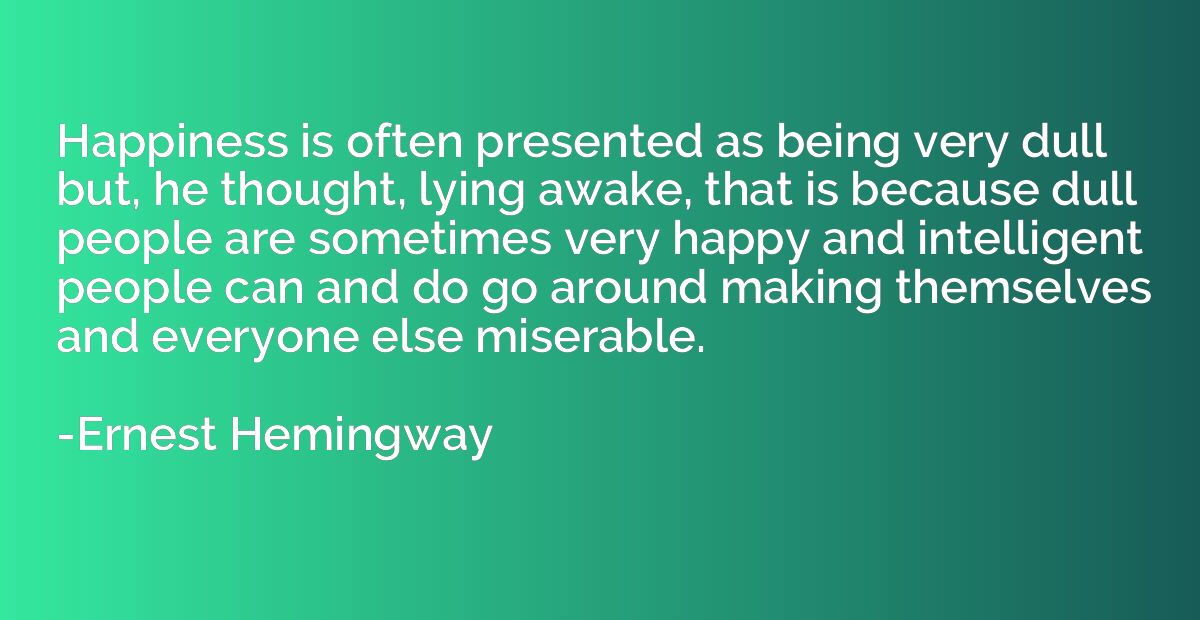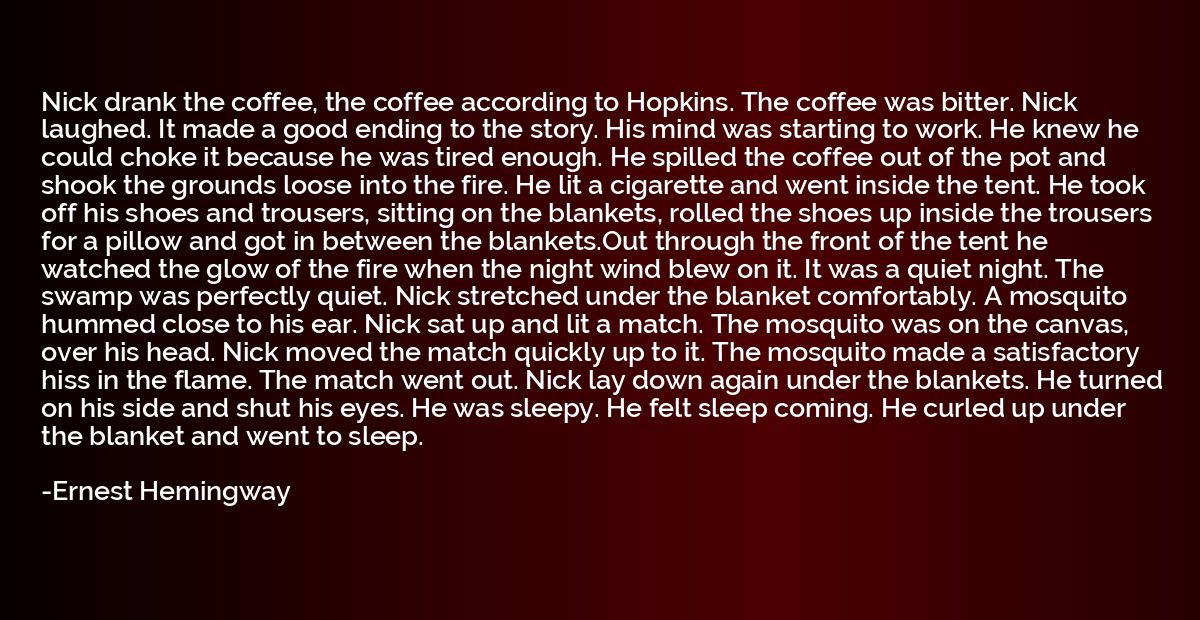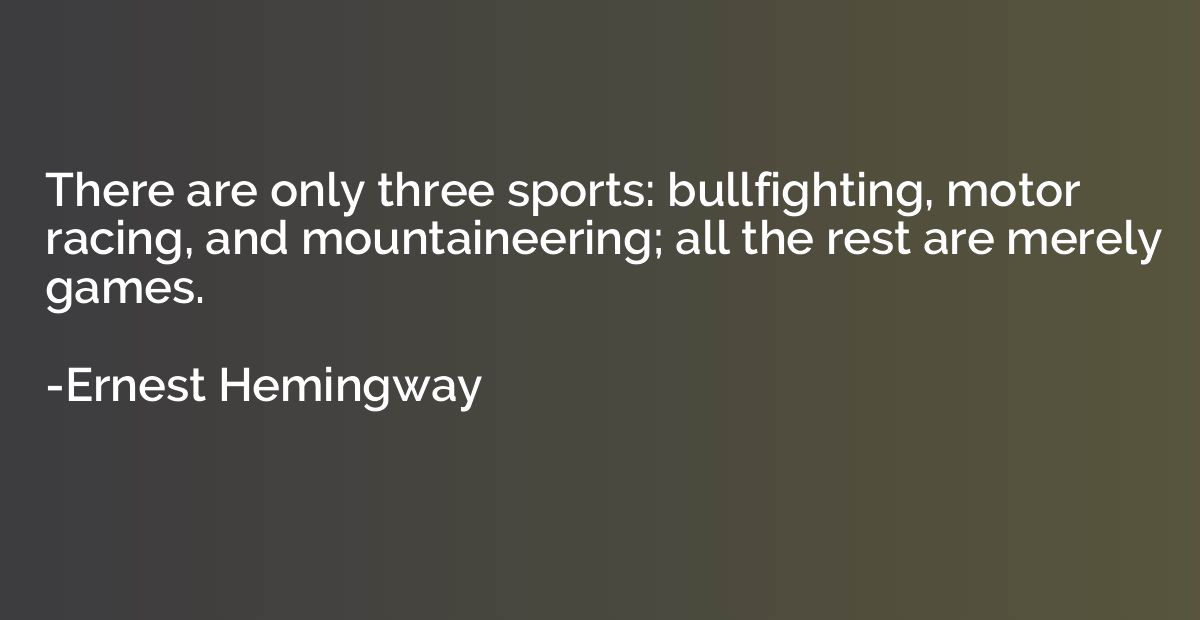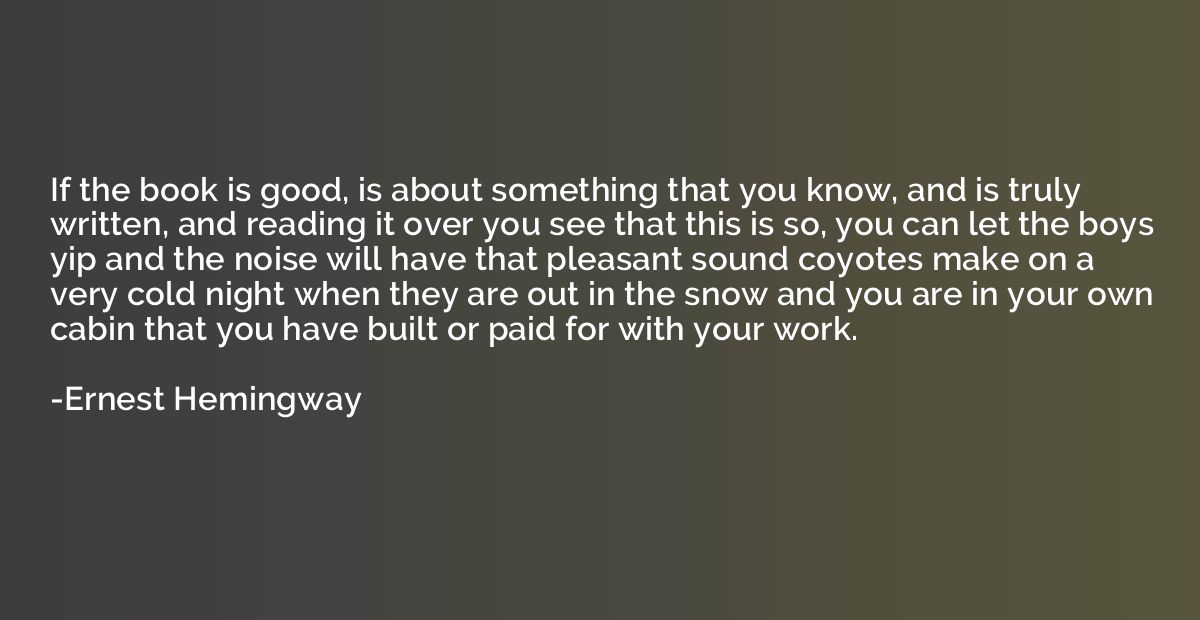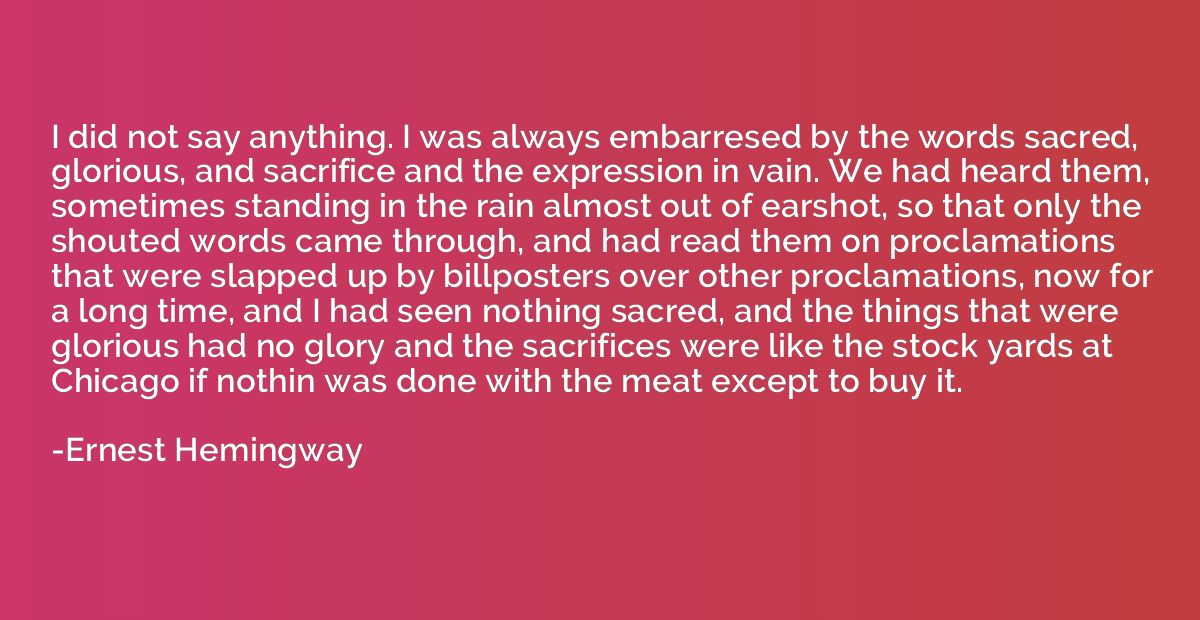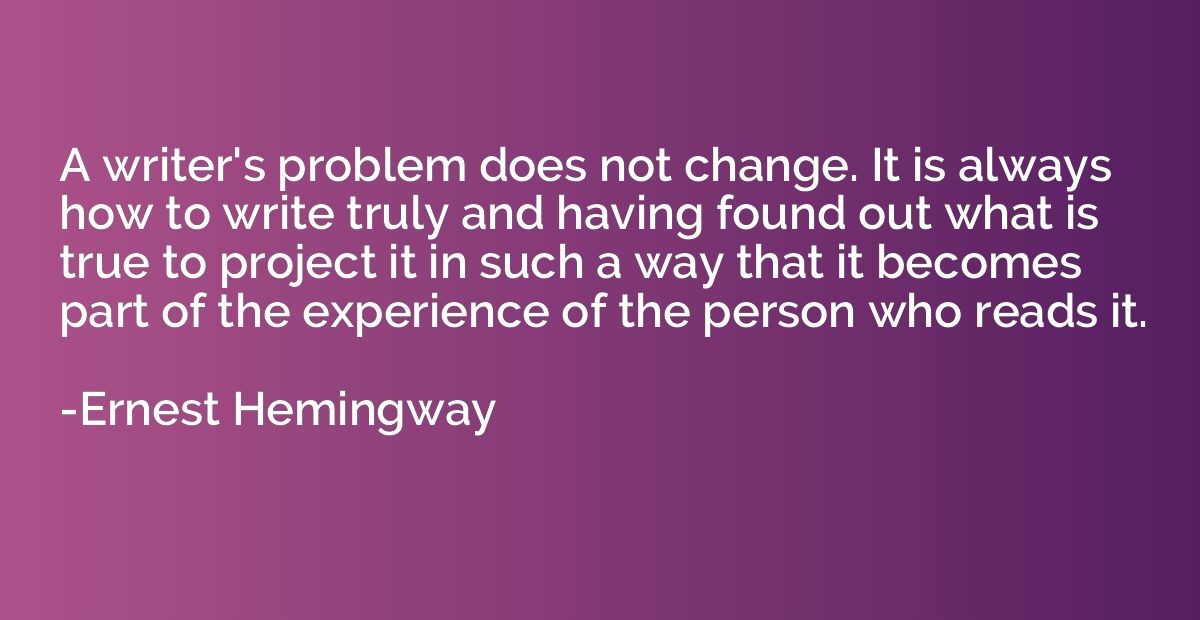Ernest Hemingway Quotes
A collection of quotes by Ernest Hemingway.
Ernest Hemingway (1899–1961) was an iconic American writer and journalist, often recognized as one of the significant figures of 20th-century literature. He was born and raised in Oak Park, Illinois. Hemingway began his writing career as a journalist for The Kansas City Star after graduating from high school. In 1918, he volunteered as an ambulance driver during World War I and was wounded in action, an experience that later influenced much of his fiction.
Known for his distinctive writing style characterized by simplicity and understatement, Hemingway's work had a profound impact on modern literature. His novels, including "The Sun Also Rises" (1926), "A Farewell to Arms" (1929), and "For Whom the Bell Tolls" (1940), portrayed themes such as masculinity, war, disillusionment, and the human condition. Hemingway drew inspiration from his own eventful life, often seen through the lens of his expatriate years in Europe, particularly his time in Paris in the 1920s.
Throughout his life, Hemingway received numerous awards and accolades for his contributions to literature. In 1954, he was awarded the Nobel Prize in Literature "for his mastery of the art of narrative and for the influence he has exerted on contemporary style." Hemingway's unique writing voice and his adventurous, often turbulent personal life continue to capture the imagination of readers worldwide. N/A
